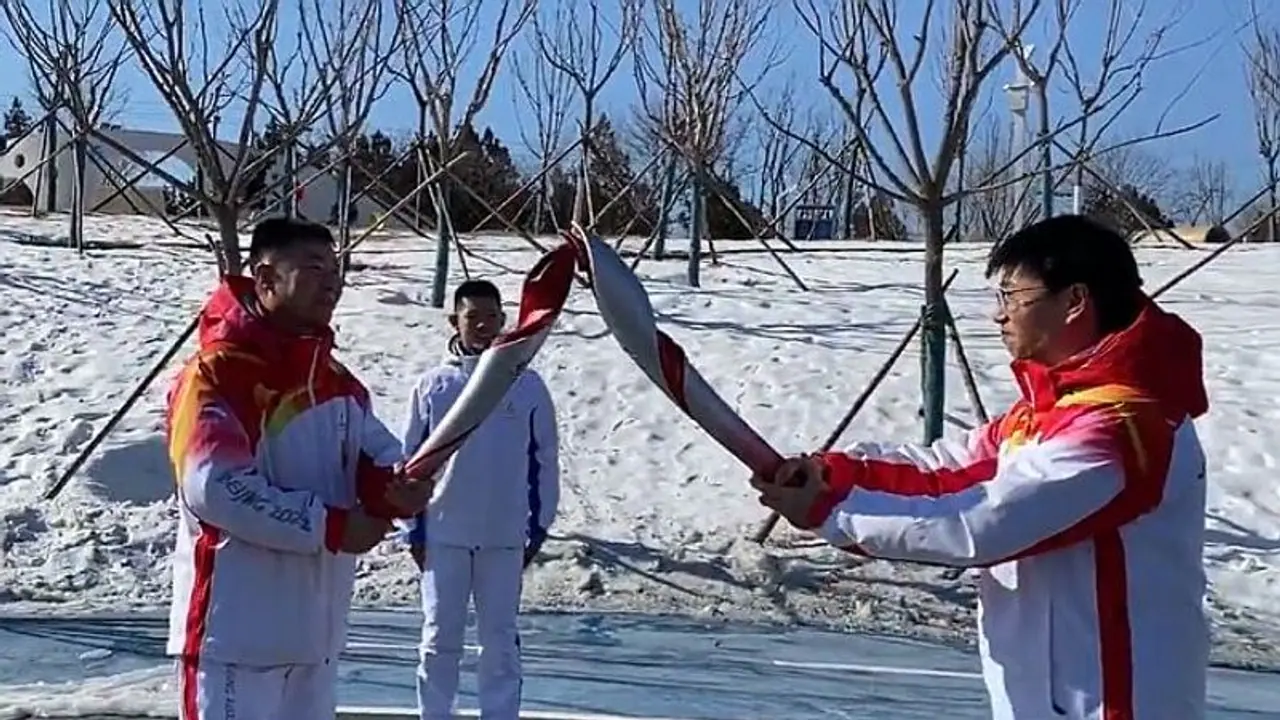China's PLA regiment commander Lt Col Qi Fabao has recovered after being in a coma after sustaining head injuries during the Galwan Valley clash with Indian troops in 2020.
China's claims of keeping politics off from the Beijing 2022 Winter Olympics once again stand exposed. Months after he expressed the desire to get his boots back on the ground, China's PLA regiment commander Lt Col Qi Fabao, who was in a coma after sustaining head injuries during the Galwan Valley clash with Indian troops in 2020, was made torchbearer for Winter Olympics Torch Relay.

According to the Chinese government mouthpiece, the Global Times, the Chinese military officer received the flame from four-time Olympic short track speed skating champion Wang Meng, at the Winter Olympic Park.
There are around 1800 torchbearers, including 1200 for the Winter Olympic Games and 600 for the Paralympic Games. The oldest one is aged 86 while the youngest one is just 14. Themed as 'Let us meet at the rendezvous of ice and snow; let us run towards a shared, brighter future', the relay which commenced on February 2 will culminate on February 4, across the three competition zones.
The journey of the torch commenced in October last year with activists hoisting banners accusing China of human rights abuses at the flame-lighting ceremony in the Olympic spiritual homeland of Greece.
On violation of human rights in China, countries like Australia, Canada, Japan, the UK and the US announced a boycott of the Games at a diplomatic level. But these countries will send their athletes to compete in the Games. However, America's allies like South Korea and France have announced that they will not join the diplomatic boycott of the Games.
The last time the US along with 44 countries had boycotted the Games in 1980 Moscow Games against the Soviet invasion of Afghanistan. Then, China had also joined in.
Last month, Lt Col Qi Fabao had informed that he had recovered well from his head injuries. On June 15, the troops of India and China had a violent clash in the Galwan Valley that left 20 Indian soldiers dead. China had claimed only four of its soldiers were killed in the faceoff. It was the first violent incident between two Armies since 1967.
Also Read: United Arab Emirates to impose federal corporate tax for first time
Also Read: New York Times acquires viral game Wordle for seven-figure price
